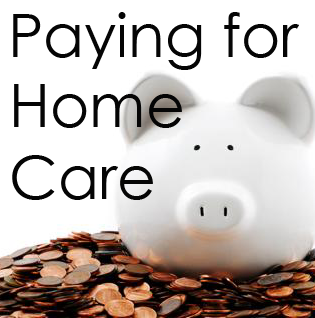Keep Costs Down By Knowing Your Options.
 Many families are very surprised when they realize the price tag of many senior care services. Knowing your options on paying for home care and other senior services is crucial when planning for the future. Costs vary based by the type of care/housing one is looking for, geographical location, services offered, etc. But there are ways to keep what your family pays out of pocket to a minimum. Below are some options available to help pay for home care. For more information on paying for home care, reach out to one of our senior care experts by sending a message through our contact page, or calling us today at (206) 910-8177.
Many families are very surprised when they realize the price tag of many senior care services. Knowing your options on paying for home care and other senior services is crucial when planning for the future. Costs vary based by the type of care/housing one is looking for, geographical location, services offered, etc. But there are ways to keep what your family pays out of pocket to a minimum. Below are some options available to help pay for home care. For more information on paying for home care, reach out to one of our senior care experts by sending a message through our contact page, or calling us today at (206) 910-8177.
Long-Term Care Insurance
Not to be confused with traditional health insurance, long-term care insurance is designed to cover long-term services such as personal care and activities of daily living (ADL’s) such as bathing, dressing and eating. The services are covered in a variety of settings such as in the seniors home, community organization, or other types of facilities. Seniors with long-term care insurance are allotted a daily amount of care based on the preselected limit chosen when they purchased the policy. The rate the senior pays is based off a number of factors including age, daily care limit selected by the policy-holder, and the selected amount of time that the policy is valid for. For more information, visit the Long-Term Care information page presented by the U.S. Department of Health and Human Services.
Converting Life Insurance Policies
The owner of a life insurance policy can convert their policy it into a Long-Term Care Benefit Plan. What this means is that instead of allowing the policy to be surrendered or lapse, the converted plan will be available to cover costs of any senior care that the policy owner chooses. This financial option is unique in that it allows for immediate care requirements regardless of health conditions. To learn more about converting life insurance policies into a long-term care benefit plan, read Life Care Funding’s post on the subject.
Reverse Mortgage
Also known as a Home Equity Conversion Mortgage (HECM), a reverse mortgage is a type of loan for people over the age of 62 that draws from the equity within their home. The senior is free to use the proceeds from the reverse mortgage while still retaining ownership of and living within their home. The amount of funds available to the senior is determined by a number of factors including the homeowner’s age, the value of the home, the current interest rates, as well as any liens or outstanding mortgages on the property. It should be noted that the fee’s that are incurred through a reverse mortgage are usually higher than those of a traditional mortgage.
To learn how Northwest Senior Care has successfully reduced overall cost of care through technology, read the explore their advancements in Care Technology.
